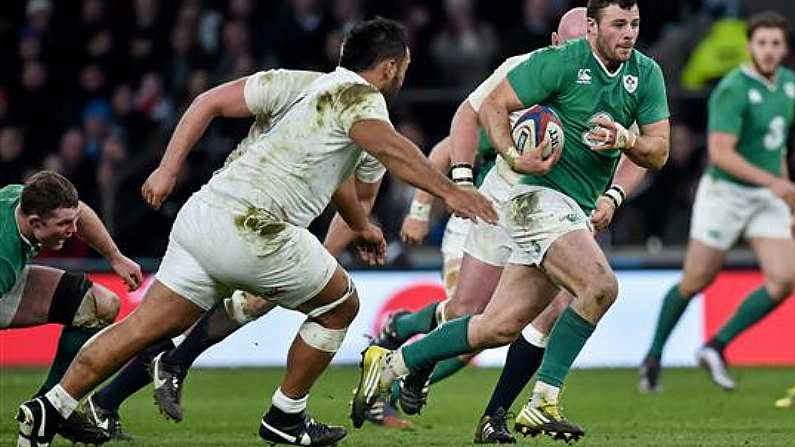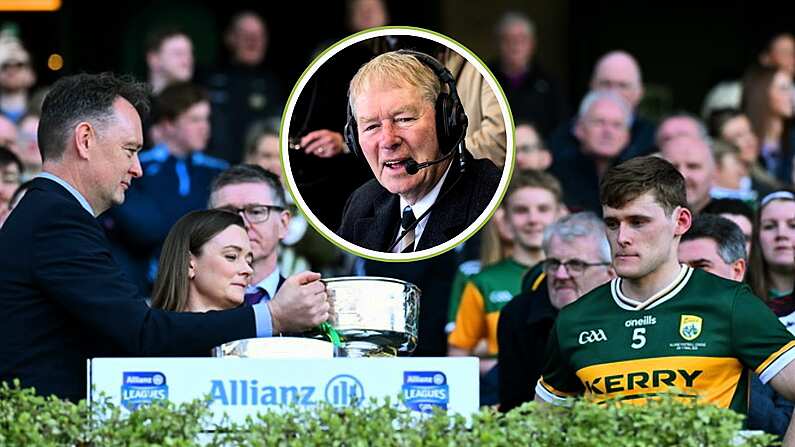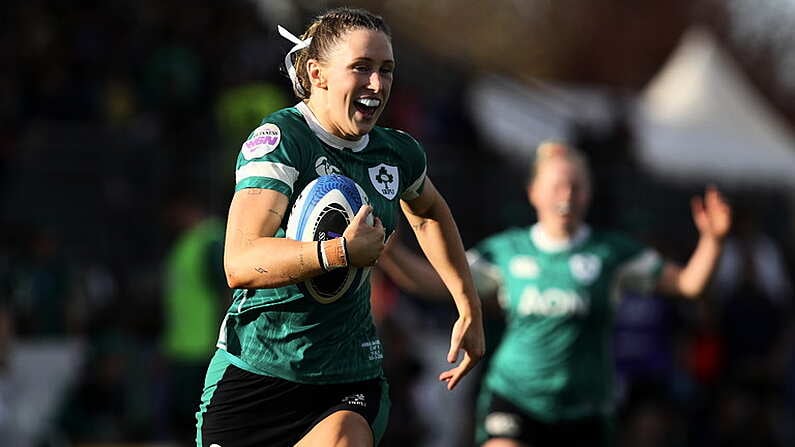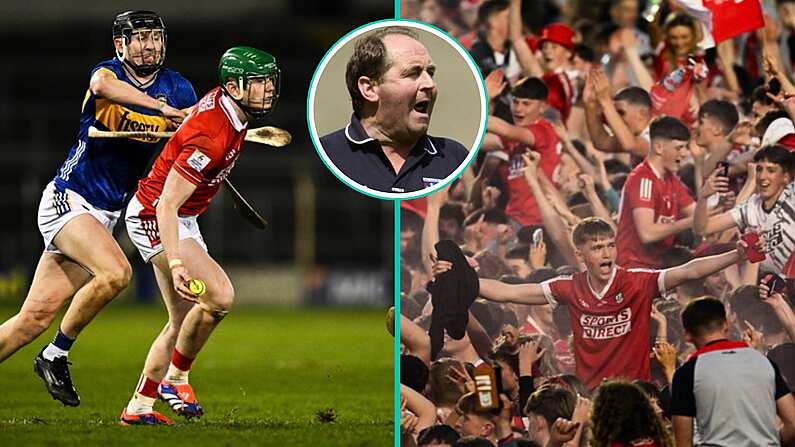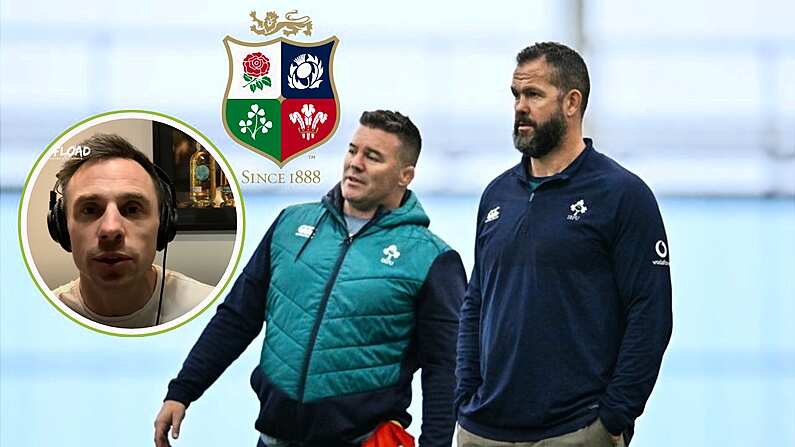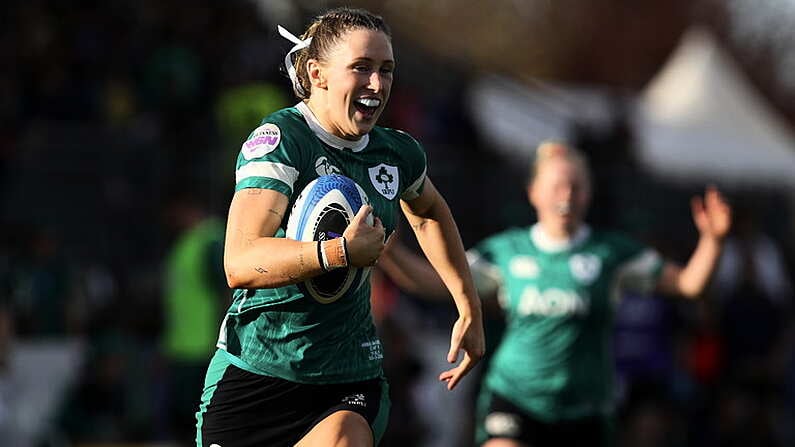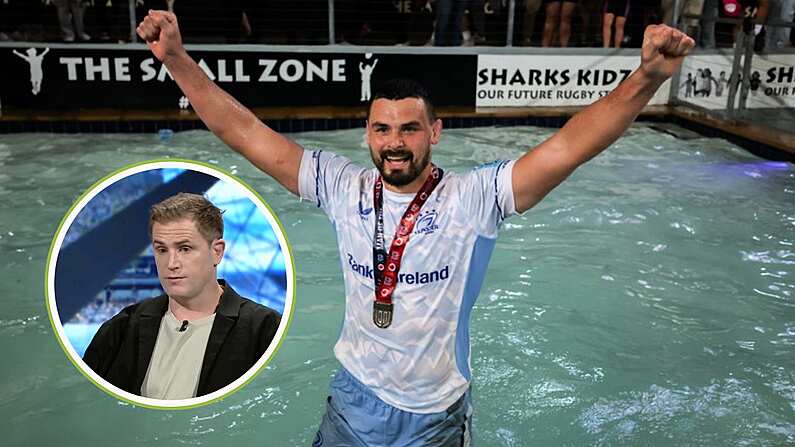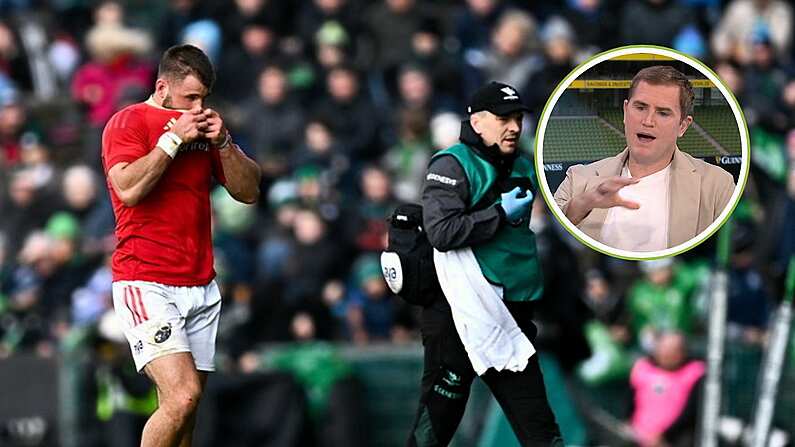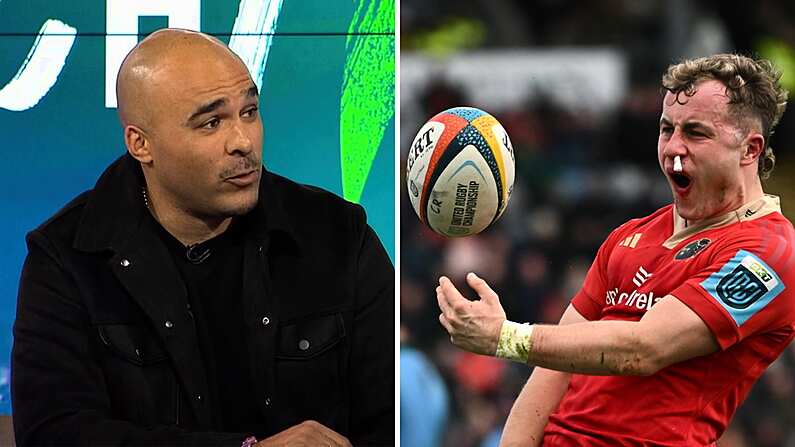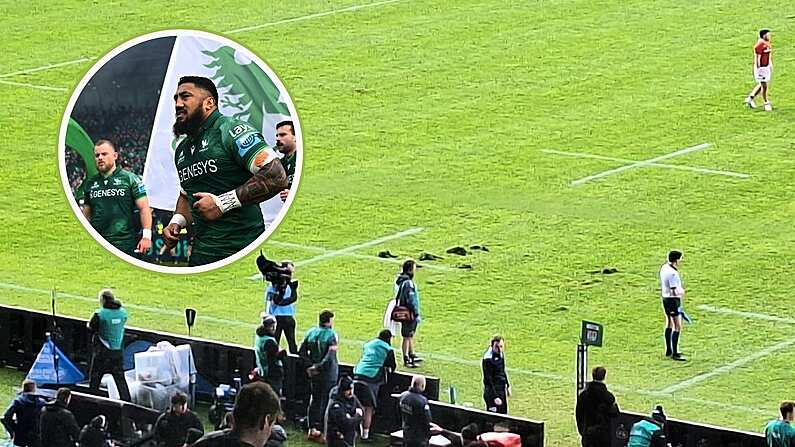While we here in Ireland are understandably pessimistic surrounding a second Six Nations defeat - and a fifth consecutive defeat at Twickenham - those across the water have found some reasons for us to be positive.
The Telegraph have used the forum of their talking points from the weekend's Six Nations games to tell us we should be mightily optimistic about the future and that Jonathan Sexton is among the finest fly-halves in the world.
Daniel Schofield, who branded the treatment of Jonathan Sexton in Paris a fortnight ago a disgrace, has accentuated the positives for Joe Schmidt's vanquished Irish side. Schofield writes that injuries have forced Schmidt to trust youth, and believes we showed more ambition at Twickenham than we had in some time:
In the coming months I wonder how seminal their 21-10 defeat by England will seem in the evolution of Ireland 2.0 under Joe Schmidt. The New Zealander has been wedded to a system and set of personnel that brought much success in his first couple of seasons. A terrible run of injuries, which deprived Schmidt of at least half a dozen of his regular starters, has forced him to broaden his horizons.
The three players – Stuart McCloskey, Josh van der Flier and Ultan Dillane, off the bench – made their debut sat Twickenham and all impressed to different degrees. McCloskey certainly did enough to suggest that he could be a long-term, hard-hitting foil to Robbie Henshaw in the midfield. As an openside, Van der Flier is the polar opposite to Sean O’Brien, yet his link play offers new dimensions.
Even in defeat, Ireland played with more ambition than they have in any time under Schmidt in the past 12 months.
Elsewhere, Mick Cleary addressed Owen Farrell's and George Ford's scrap for the English No.10 jersey by pointing out the fact that neither of them can measure up to Johnny Sexton:
Whoever is your fancy, and Ford is Eddie Jones’ man for the immediate future, neither of them matched Jonathan Sexton. The Ireland out-half, whether goaded by Jones’ pre-match comments or merely responded to his own deep-rooted competitive instincts, delivered as fine a game as he has produced in the last two years.
He was clear-headed, sharp on the break, on-point with his kicking and decisive. It was a return to form, and an example of the heights to be reached by either Ford or Farrell.
We quite like the Omar Little "come at the king, you best not miss" vibe from Cleary's analysis.
While there are objective reasons to be optimistic, the sad reality of results are rudely intruding; shining a light on a glass that is below half-empty. For example, Schofield describes Ireland's weekend clash with Italy as a "basement battle", which has the dual gloom of being both absolutely true and all too real to see in print.

